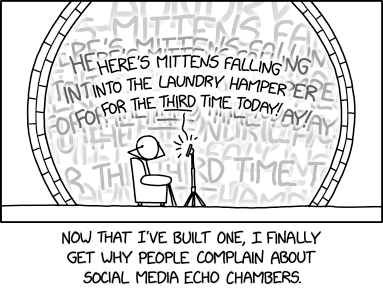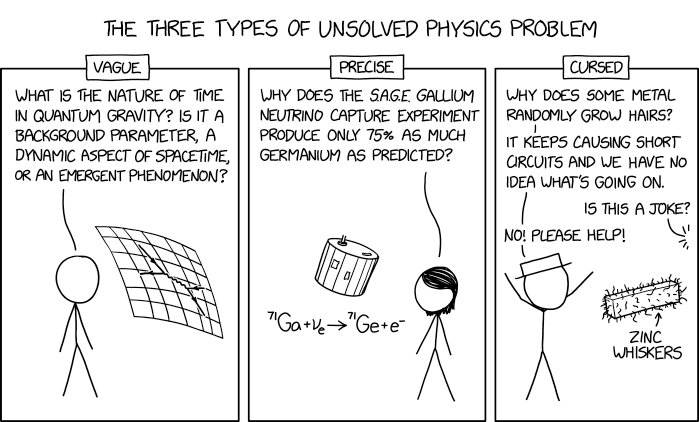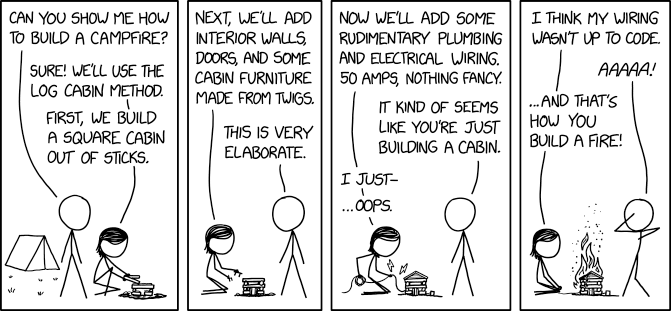Writing Excuses 20.27: The Lens of Why
Key Points: The lens of why? Authorial intent. Why did you write this book? Theme and meaning? Meaning is what the reader brings to the book. Approach them as questions. Theme is what the author puts into a book, meaning is what the reader gets out of a book. What am I trying to say with this book? Theme and meaning and authorial intent are just a coffee coaster. Help? A story or story structure is a pitcher, that you can put anything in that you want. The reader brings their vessel, a cup, which you fill from that pitcher. A story asks a question, while a polemic answers it. Theme as a series of questions? Moments of discovery of what my theme is? Rewriting can be a joy.
[Season 20, Episode 27]
[Mary Robinette] This episode of Writing Excuses has been brought to you by our listeners, patrons, and friends. If you would like to learn how to support this podcast, visit www.patreon.com/writingexcuses.
[Season 20, Episode 27]
[Mary Robinette] This is Writing Excuses.
[Howard] The Lens of Why.
[Mary Robinette] I'm Mary Robinette.
[Howard] I'm Howard.
[Dan] I'm Dan.
[Mark] And I'm Mark.
[Howard] We are joined by our special guest Mark Ashiro here on Navigator of the Seas...
[Mary Robinette] You will have already been listening to Mark on some of our earlier episodes at the beginning of the year. Because we time-travel. We haven't recorded those yet, so we don't know what we've talked about.
[Howard] We're quite sure they're awesome.
[Mary Robinette] Brilliant. They are brilliant.
[Mark] I'm going to tank those ones on purpose now.
[Laughter]
[Howard] Mark, will you take a moment and tell us about yourself?
[Mark] Of course. I am primarily a young adult and middle grade author. I have seven published books, many more to come. I'm also very lucky in that I am a multi-genre author and I get to genre hop. So I like taking deep dives into genre structure, all things nerdy.
[Howard] Outstanding. Well, let's talk for a moment about the lens of why. This is a category we're using to describe tone and frame, authorial intent. Theme and meaning. All kind of wrapped up under the question of why did you write this book? Why did you write this book? And I want to begin by focusing a little bit on just theme and meaning, because I always struggle with these. So I'm going to ask the question to my fellow hosts. How do you differentiate between theme and meaning?
[Mary Robinette] I… This is my own personal take. And I think about both of those as things that are not necessarily for me. So, theme, for me, is something that people who are writing essays or reviews are about, that it's big, sweeping arcs of stuff. Meaning, for me, is what the reader brings to it. There's stuff about the book that means stuff to me, but it's often a personal thing that never surfaces for the reader. So I tend to, when I'm going into this, approach them as questions. What is the question that I'm asking? And I think that that is essentially what people are talking about with theme. That… Like, I will… The novel that I'm working on right now, the question that I'm asking is how many times can you lie to someone you love? That's not… It's not my intention to answer that question. My intention is to explore it. And I think that's what people are talking about when they talk about theme. But, for me, theme… Like you, Howard, is an amorphous thing that someone… Because I also see people like, ah, yes, thematically, they've used the color blue throughout this. I'm like, or they liked it.
[Chuckles]
[Mary Robinette] It was on sale.
[Howard] Okay. I'm going to… I need to one trick pony this. My one trick is metaphors. Theme is how many licks does it take to get to the center of a Tootsie pop. And meaning is the owl doesn't care about the question, the owl is just going to bite the Tootsie pop. Meaning doesn't answer the question, necessarily. Meaning provides an answer in a different way, and theme asks the question without necessarily providing an answer.
[Mary Robinette] I think in another way you've demonstrated my thinking here, which is, with your metaphor, you've used a metaphor that kids these days won't get. And so you've got a meaning that is important and meaningful to you, but they're going to bring a completely different meaning to it when they read it. What are you thinking, Mark?
[Mark] So, my way into thinking about this is very similar to yours, is when I'm starting a project, it almost immediately always has a meaning to me. This is the reason why I want to write this, this is what I think is interesting. I don't often know the theme until much, much later. Because the theme will then diverge very much from the meaning that I intended or the meaning that I had for it. I think it's also interesting, as someone who is writing kid lit and is constantly interacting with readers, how often the readers, these kids will go on long five-minute tangents to me about what this book is about or what this story's about. And I'm just sitting there, nodding my head, like, that's totally what I intended. And seeing the way that someone can read something and find 20,000 different things you never intended, you never thought of. And so, for me, that's meaning. That's where meaning is. It is also fun, though, when you have these experiences where someone does see the theme that you have written in there, that is intentional. But, yeah, they don't always match up. I think it is fun, though, I will say, when the two, your meaning and the theme, matchup, and someone catches it. Those are the [garbled], that beautiful trifecta moments you have.
[Mary Robinette] Yeah.
[Howard] At breakfast today, Kate McKean said… I asked the question…
[Mark] Yeah.
[Howard] She's going to be on some episodes with us this year.
[Mary Robinette] She will have already been on episodes.
[Howard] She will have already been on episodes…
[Laughter]
[Howard] With us this year.
[Mark] Time travel!
[Howard] Sorry, I keep forgetting to use the future has been tense.
[Chuckles]
[Howard] She said, oh, yeah, theme is what the author puts into the book, meaning is what the reader gets out of the book. Which is also a convenient definition. Dan, you were going to say something?
[Dan] I just thought… I'm really fascinated by this conversation, because I think I'm the opposite of you, Mark, entirely. I think about theme a lot. Theme, to me, is what is this about. What am I putting into it? I can't think of meaning… I can't think of a book I've written where I know what it means. Like, that is a completely foreign concept to me. What does this book mean? I don't know. Whereas the theme, what is this about, what am I trying to say with it, that's something that I do think about very consciously.
[Mary Robinette] Yeah. I think about… I think this is why I liked the umbrella term of the why. It's like…
[Mark] Right.
[Mary Robinette] The why of the book. Why is this important to me? Why is this a book I want to tell? Why is this a journey that my characters want to go on? Because theme does have so many different meanings for so many different people.
[Howard] There's… We have in a couple of weeks an episode about specifically authorial intent, and, for me, the Venn diagram of theme and meaning and authorial intent… Boy, depending on what angle I'm looking at it, it's just a coffee coaster. It's just one circle, they all fit in the same thing. And so I struggle a lot with these definitions. Help? Help me.
[Dan] We all thought you were going somewhere with that.
[Laughter]
[Howard] I am going somewhere. I am asking you a question.
[Mark] We thought you were providing us with guidance, and then you're like, I need the guidance.
[Mary Robinette] So this is something that… A metaphor that I use when I'm talking about a structure… Structure, but also the relationship with the audience. And I probably talked about this in an episode at some point, but… Hello, we're going to revisit. That when you're thinking about a story, a story structure, that it's a pitcher, that's a container. It contains whatever it is that you want to tell. Pitchers come in a bunch of different shapes and you can put anything in them you want. You can put gazpacho for reasons. You can put a Pinot Noir, you can put apple cider. You can put anything into that pitcher you want. Depending on the genre you're in, the pitchers may have different shapes. You may decide to become a glassblowers and make your own. That's the story as you intend it. When the reader comes to you, each reader brings their own vessel. And when you're looking at the vessel, a Pinot Noir glass is designed to shape the way you're experiencing Pinot Noir so it hits your palate in a specific way, brings out all of these bouquets and things. So if I have a Pinot Noir in my pitcher, and I pour it into your Pinot Noir glass, you are experiencing the story as I intended it. You're getting my theme and meaning. But if you come to me with a red solo cup, you're still going to enjoy that. If I've got hot apple cider, and you come to me with a ceramic mug, perfect! We got a good match there. If you come to me with that Riedel glass, which was so good for the Pinot Noir… It's likely to shatter from the hot apple cider. Which is not my intention. And so, for me, when I'm thinking about it, I'm thinking about who in my writing for? But I'm also not… Like, I can't also think about, oh, I have to think about every possible vessel that may come to me. So, when I'm thinking about that meaning, like, for me, the meaning is the way the reader experiences the story. That's… And sometimes, as Mark was talking about, they do line up perfectly. So this is why I have found that if I think about the what question am I asking, why am I telling this, who am I telling it for, that those give me measurable things for myself that I can use to make decisions. I can measure against the is this going to make so-and-so laugh? Then that's… Yes. And that was… That's my intention. That's my… The meaning for this moment. Great. Then I can measure against that. If I want this… If I want a laugh here and it's not going to make them laugh… Other people may also laugh at that point, but also, sometimes, you put in, like, an in-joke that is for one very specific cup.
[Mark] I want to jump in here, because now you just triggered sort of a memory that might help with differentiating between theme and meaning. So my first book, Anger Is a Gift, I wrote… a secondary character is a trans-racial adoptee, like myself. If you're listening and unfamiliar with that term, it is someone who is adopted out of their ethnic and racial culture and into another one. It usually describes kids of color who are adopted by white people. So I have a white adopted mom and a Japanese Hawaiian adopted father. And so I wanted a dynamic I have almost never seen in fiction. Because usually adoption narratives are just… There's an adoption, it's usually not transracial, you might see foster care, orphans, or whatnot. But that specific experience is so specific, you don't see it. So I wrote this character who's dealing with being Latino who is adopted into a white family and the privilege that comes with that. That's my theme. The themes of privilege and how this person who is a person of color is in a very white society… Not only that, but in the neighborhood she lives in, and then how she interacts with her friends who are from a poorer neighborhood. That's my theme. What I'm talking about, what's the authorial intent. The second day this book was out, I was at a book event with Jason Reynolds in DC, and a man came up to me and said, "I read this whole book last night and I loved it. But I need you to know, like…" It was an older white gentleman and he's like, me and my husband adopted this young black girl, and I think I need to, like, talk to her, because I don't think I've raised her right. And I'm like holding this book open and I'm like, who do I make it out to? Like…
[Laughter]
[Mark] That man got the theme, but it had a different meaning. Because… And I love that you're talking about [garbled]
[Howard] And it had a very powerful meaning.
[Mark] Very powerful meaning, but, also, I was like, that's not it. I do… This is not for you. I was not writing for you, but that is a thing where the liquid I'm pouring out went into… I won't say the wrong cup, because I don't…
[Mary Robinette] Yeah.
[Mark] Want to make that judgment call…
[Mary Robinette] No, no.
[Mark] But a cup that shattered. And it was fascinating to me, because I'm like, I love that you did get the theme of this child's parents did not treat them well… Whoa, that is not the meaning I intended at all. Sorry if you happen to be listening and had an existential crisis for the last six years, but…
[Chuckles]
[Mark] But that's interesting because it's someone who understands the theme, but the meaning was still different for them.
[Mary Robinette] Yeah.
[Howard] But if that individual came away from your book and what they came away with first and foremost was I need to have a conversation with my adoptive daughter…
[Mark] Yeah.
[Howard] About transracial adoption and parenting. I don't see parents having conversations with their children as a bad thing.
[Mark] Oh, yeah. No.
[Howard] That's… I would not say that cup shattered. I think that someone got meaning from it that you didn't expect, and had a very powerful experience that you didn't intend, but that was probably a net good.
[Mark] Yeah, I agree. I agree with that.
[Mary Robinette] Yeah. I also don't think that sometimes a cup shattering is always a bad thing, because sometimes you need a different cup.
[Mark] Yeah.
[Chuckles]
[Mary Robinette] The thing that I was thinking about was a conversation that I had with Elizabeth Bear years ago. It was, like, one of those conversations where you're sitting around at a convention, and someone drops a… Just a one sentence thing that blows your mind for the rest of time. And she said that a story was something that ask a question, and a polemic was something that answered it. And so, when you were talking about the questions that you are asking, how does she relate to the people that she knows, how does this impact… Those are all questions.
[Mark] Yeah.
[Mary Robinette] And what you're showing is one way in which it might be experienced. But I'm going to go out on a limb here, and say you're also showing multiple ways, multiple answers to that. And that is, I think, where you… For me, the thing… Thinking about theme in that way, as a series of questions as opposed to a series of answers, is that it allows space for the reader. And I think any time you can allow space for the reader to come into the story, any time you can invite them in, that you do have the potential for a more powerful meaning.
[Howard] And on the subject of space for the reader, our advertisers don't actually read this, but we're going to give them some space.
[Howard] I have an experience I want to share about when I thought… When… I look at it now and think back at it. And I think that learning my theme, learning my meaning, caused me to change what I was writing. Early Schlock Mercenary, I did not realize… This is going to sound a little silly, I know… I did not realize that I was writing social satire. Once I realized I was writing social satire, a lot of lights came on, and now I had, as a writer, I had a sense of purpose, a sense of meaning. I knew what certain themes were going to be. My question for you, my fellow hosts, have you ever had a similar moment of discovery, where you realized, oh, wait. This is what this means. This is what my theme is. And you changed your course?
[Mary Robinette] Mark, I just watched you nod all the way through that, so [garbled]
[Mark] [garbled] And I love this too, especially because, it was for a book that was contemporary, and the theme could only manifest as speculative fiction.
[Mary Robinette] Ah
[Mark] So, my most recent YA book, into the Light, is a secret speculative fiction book, where the speculative fiction twist does not happen until like 325 pages in, when you realize you've been reading speculative fiction the whole time. Which, by the way, actually has made people very angry when they read it…
[Chuckles]
[Mark] Because it's so [garbled unlike]
[Howard] Dan has no experience with this.
[Laughter]
[Mark] Yes. And I'm sure you can speak to (one) it is a very creative… Creatively satisfying thing to do, but I even knew when I realized what the theme of this book was actually going to be, that it was going to be an unnerving and upsetting experience for the reader, because you thought I was leading you into one story, and your very much not being led into that story. And people… I do get why people go into a book and expect one genre and you don't get that. But I had written multiple drafts, I'd figured out structure. But I was having this problem with the two main characters where I was very frustrated because they sounded a little too similar. And what was it about the two of them that made them different enough to warrant this being a book? I had my meaning before I started the book. I had my meaning before I even started outlining it or brainstorming. I knew what the theme was before I started drafting. So I felt very secure in what I was about to do. But when I was actually writing these two narrators, something wasn't right. They felt disjointed, they felt angular. I was like, they're not clashing in ways that are interesting, their clashing in a way that's just upsetting. Why can't I get them to be what I want them to be? It was in a conversation that I was having that I… On the phone with my editor, where I said something very similar, like, they cannot be what I want them to be, and I was like, oh! That's actually the theme. The theme is of this whole…
[Mary Robinette] Yeah.
[Mark] Kind of why I was struggling with this is it is a book about religious repression and rejection, it's about two kids who are tricked into conversion therapy. And they go through very different experiences with it. And the theme that I was struggling to vocalize is, for some people in this world, you'll never be good enough.
[Mary Robinette] Yeah.
[Mark] And I just was sitting there and I'm like, I'm doing it now, I'm saying they're not good enough and they aren't fitting the mold that I want them to. And I'm like, oh, my God, that's it! And I mean, unfortunately, you have that moment where I was on the phone with my editor, Miriam Weinberg at Tor, where she's like, you're going to have to rewrite the whole thing, aren't you? And I'm like, yeah…
[Chuckles]
[Mark] This is the third rewrite, and I'm like, yeah, I'm going to have to, but I know what it is, in the way I figured out how to… Without spoiling it, was it required something extremely bombastic and very, very speculative fiction. But… And I'm curious to hear, too, for people who have had this, that moment of, like, oh, this is right, this is it. I'm exactly where I need to be.
[Howard] I shared with a student yesterday morning… We were talking about the necessity for rewrites, and I said, yeah, I got bad news for you. If you love having written, finding that you need to rewrite the whole thing is terrible. But, if you actually love to write, the opportunity to make this discovery and go back and rewrite it can be a joy.
[Mark] Yeah.
[Mary Robinette] Yeah.
[Howard] Because now you get to do it again.
[Mark] With… At least for me, this sort of, like, infectious certainty.
[Howard] You get to do it better.
[Mark] Yeah.
[Mary Robinette] Yeah.
[Mark] Where you've [sussed?] out as you are making decisions, and then you get to make even more because you feel good about the decision you made.
[Dan] I've talked about this a little bit before, but I've had this experience with three of the John Cleaver books. Four, five, and then, in between them, a novella called Next of Kin. Which I think of as my basically Alzheimer's trauma books…
[Chuckles]
[Dan] Because they were about memory. The kind of basic premise of the John Cleaver series is that there are monsters who lack something and they steal it from us. And I wanted to have one who didn't have his own memories and so he had to take ours. And does that by… Does that in order to survive. And realized very quickly once I started writing that, that I was trauma dumping my grandfather's Alzheimer's experience all over the readers, and I… Then had that moment of, well, I need to go back and make this a little more palatable and a little more acceptable, but also, wow, I didn't realize that that's what this book was about, and it absolutely, that's what this book is about. That's what all three of those books are about, is me trying to work through my own history with loss of memory and the impermanence that this creates in your life and the other people around you. And having that experience halfway through really changed how I saw what those books were and what their theme was.
[Howard] All right. Well, if we have answered for you the question about what theme and meaning are, and how they are different from each other, please let me know, because I still am not confident in that. But I'm okay with not being confident in it. I feel like this is a place where the definitions we each come up with are going to function as the lens of why.
[Howard] And I have a homework for you which should be fun. Take a popular book to film or book to TV adaptation and ask yourself if the film changed the meaning or changed the theme of the book. And then, ask yourself in what ways it did it.
[Howard] This has been Writing Excuses. You're out of excuses. Now go write.












